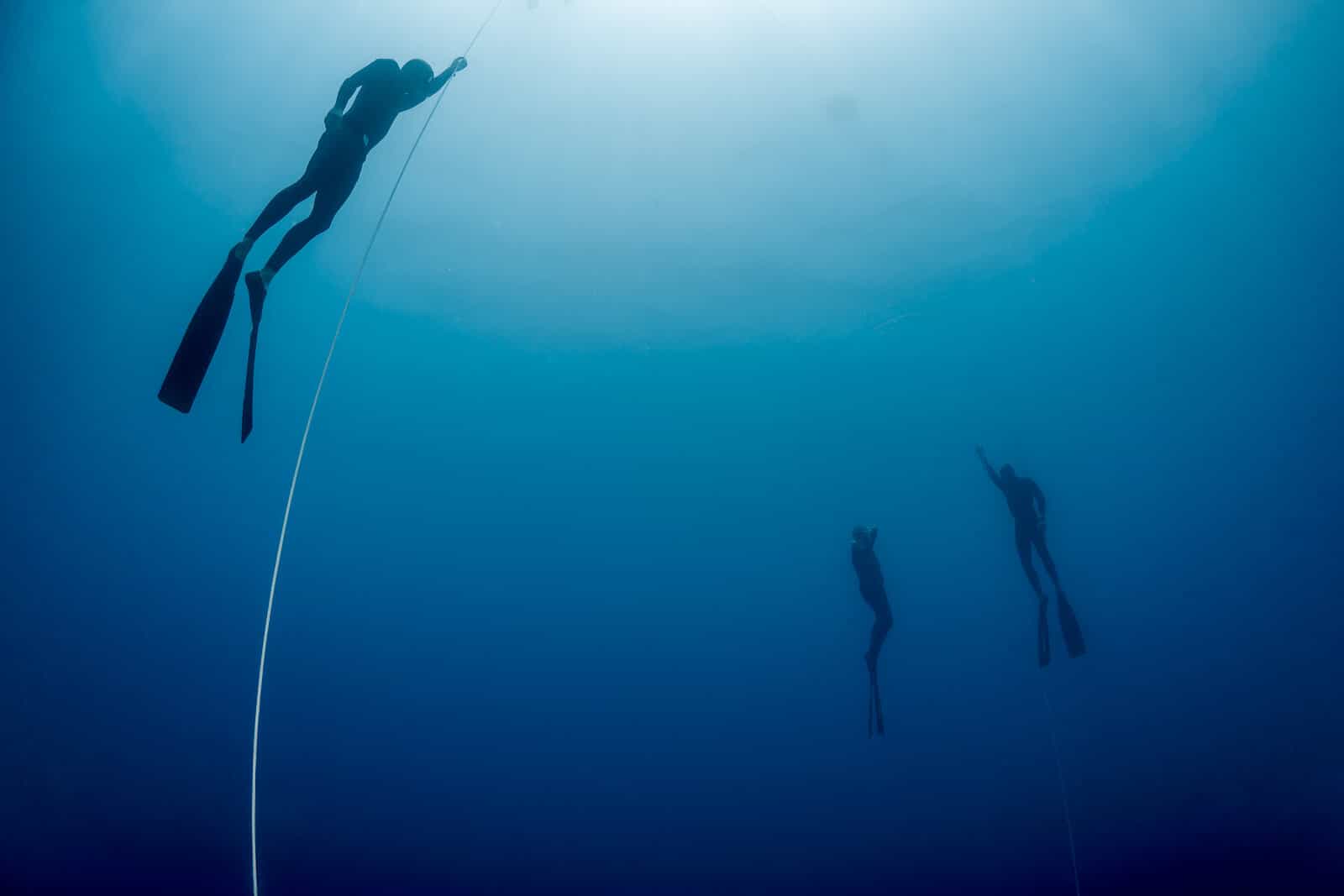Ever wondered how long you could hold your breath underwater? Well, get ready to dive into the world of extreme breath-holding because we're about to uncover some mind-blowing facts. The world record for holding breath is not just a number; it's a testament to human endurance, mental focus, and sheer determination. Whether you're a free diver, a curious enthusiast, or just someone who loves pushing limits, this article has got you covered.
Imagine standing at the edge of a pool, taking a deep breath, and diving in. As seconds turn into minutes, your body starts to feel the burn, but you push through. This is what it’s like for those attempting to break the world record for holding breath. It’s not just about lung capacity; it’s about mastering your mind and body to achieve the impossible.
So, why does this matter? Understanding the science, techniques, and stories behind the world record for holding breath can inspire us to explore our own potential. Let’s dive right in and discover what it takes to hold your breath longer than you ever thought possible.
Read also:Lennox Lewis The Undisputed Boxing Legend Who Left A Mark In History
Table of Contents
- Introduction
- The World Record for Holding Breath
- The Science Behind Breath-Holding
- Training Techniques for Extreme Breath-Holding
- Top Breath-Holders in History
- Risks and Safety Measures
- Mental Preparation and Focus
- Health Benefits of Breath-Holding
- The Competitive Scene of Breath-Holding
- Future Predictions for Breath-Holding Records
- Conclusion
The World Record for Holding Breath: A Glimpse into Human Potential
The world record for holding breath has been broken multiple times, with each new record pushing the boundaries of what we thought was possible. As of recent years, the record stands at an astonishing 24 minutes and 3 seconds, achieved by someone who dedicated years to mastering the art of breath-holding. But how do they do it? And what does it take to break such a record?
How Long Can Humans Hold Their Breath?
Most people can hold their breath for about 30 seconds to a minute without much training. However, with the right techniques and preparation, this time can be extended significantly. Professional free divers and breath-holding enthusiasts train their bodies to adapt to low oxygen levels, allowing them to stay underwater for extended periods.
Here are some key factors that contribute to breaking the world record for holding breath:
- Increased lung capacity through regular training.
- Enhanced mental focus and relaxation techniques.
- Optimized heart rate and oxygen consumption.
The Science Behind Breath-Holding: What Happens to Your Body?
When you hold your breath, your body undergoes a series of physiological changes. Your heart rate slows down, your blood vessels constrict, and your body prioritizes oxygen delivery to vital organs. This natural response, known as the mammalian dive reflex, is what allows humans to survive underwater for extended periods.
Key Physiological Changes During Breath-Holding
Here’s a breakdown of what happens to your body when you hold your breath:
- Bradycardia: A significant decrease in heart rate.
- Peripheral Vasoconstriction: Blood vessels in non-essential areas constrict to conserve oxygen.
- Oxygen Conservation: The body redirects oxygen to critical organs like the brain and heart.
These adaptations are crucial for anyone attempting to break the world record for holding breath. Understanding and optimizing these processes can make all the difference in achieving success.
Read also:Nestor Carbonell The Multifaceted Actor Who Stole Hearts As Richard Alpert
Training Techniques for Extreme Breath-Holding: Secrets of the Pros
Breaking the world record for holding breath requires more than just natural talent. It demands a rigorous training regimen that focuses on both physical and mental preparation. Here’s a look at some of the techniques used by top breath-holders:
Physical Training
Physical training is all about improving lung capacity and endurance. Techniques such as:
- Diaphragmatic breathing exercises.
- Swimming and free-diving practice.
- Cardiovascular workouts to strengthen the heart and lungs.
Mental Training
Mental preparation is equally important. Breath-holders must learn to stay calm and focused, even when their body is screaming for oxygen. Techniques include:
- Meditation and mindfulness practices.
- Visualization exercises to simulate the experience of holding breath.
- Progressive muscle relaxation to reduce tension and anxiety.
Top Breath-Holders in History: Legends of the Deep
Throughout history, there have been several individuals who have made a name for themselves in the world of breath-holding. Let’s take a look at some of the most notable names:
Stig Severinsen: The King of Breath-Holding
Stig Severinsen, a Danish free diver, holds the world record for holding breath in two categories: static apnea with and without oxygen pre-breathing. His record-breaking feats have earned him a place in the annals of breath-holding history.
| Name | Record | Year |
|---|---|---|
| Stig Severinsen | 22 minutes, 0 seconds (without oxygen pre-breathing) | 2010 |
| Tom Sietas | 22 minutes, 22 seconds (with oxygen pre-breathing) | 2012 |
Risks and Safety Measures: Staying Safe While Pushing Limits
While the world record for holding breath may seem glamorous, it’s important to remember the risks involved. Breath-holding can lead to blackouts, drowning, and other serious health issues if not done properly. Here are some safety tips to keep in mind:
- Never practice breath-holding alone.
- Always have a spotter or trained professional nearby.
- Start with short sessions and gradually increase duration.
Mental Preparation and Focus: The Mind-Body Connection
Mental preparation is key to breaking the world record for holding breath. Top breath-holders often talk about the importance of staying calm and focused, even when their body is under extreme stress. Techniques such as meditation, visualization, and mindfulness can help cultivate the mental resilience needed to succeed.
Visualization Techniques
Visualization involves imagining yourself successfully completing a breath-holding session. By mentally rehearsing the experience, you can reduce anxiety and build confidence. This technique is widely used by athletes and performers across various disciplines.
Health Benefits of Breath-Holding: More Than Just a Record
While breaking the world record for holding breath is certainly impressive, there are also numerous health benefits associated with breath-holding. Regular practice can improve lung capacity, boost cardiovascular health, and enhance mental focus. Here are some of the key benefits:
- Improved oxygen efficiency.
- Increased lung capacity.
- Enhanced mental clarity and focus.
The Competitive Scene of Breath-Holding: A Growing Sport
Breath-holding competitions have gained popularity in recent years, attracting participants from all over the world. These events showcase the skills and determination of top breath-holders, inspiring others to take up the challenge. Whether you’re a seasoned pro or a beginner, there’s always room to grow in the world of breath-holding.
Future Predictions for Breath-Holding Records: What’s Next?
As technology and training techniques continue to evolve, it’s likely that the world record for holding breath will be broken again in the future. Advances in sports science and a deeper understanding of the human body’s capabilities may lead to even more impressive feats. Who knows? Maybe one day, someone will hold their breath for over 30 minutes!
Conclusion: Dive Deeper into Your Potential
In conclusion, the world record for holding breath is more than just a number; it’s a testament to human potential and the power of determination. By understanding the science, techniques, and risks involved, you can embark on your own breath-holding journey. So, whether you’re aiming for a new personal best or just looking to improve your overall health, remember that the key lies in pushing your limits while staying safe.
Now it’s your turn! Share your thoughts and experiences in the comments below. Have you ever tried holding your breath for an extended period? What challenges did you face? Let’s keep the conversation going and inspire others to explore their own potential.


